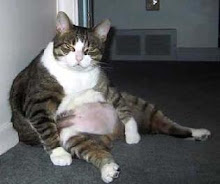Refereeing are the sporting equivalent of Traffic Wardens.
They stalk their respective domains looking for misdemeanours, dressed in a uniform that is only less favourable to that of a Nazi officer, doing an essential job of which the only guaranteed outcome at the end of every day is that they will be universally, unequivocally and profoundly hated.
Who would be a referee?
Its a thankless task, where no matter how efficient you may be, you are still unpopular. You have to be prepared for criticism, ridicule and in many cases physical abuse from both players and spectators. YouTube is packed with videos where a referee has made a decision (one of potentially hundreds during a match) and has had to endure a swift barrage of awkward looking kicks from players, on his way off the pitch to be greeted by 80,000 even angrier people. In Wicklow a few years back, a few folk took offence to a referee’s view on the game and expressed their displeasure by catching him after the match, batting him around the head a little before locking him in a car boot for a few hours. Referees in Brazil pay for that stuff on the weekend in comparison to the consequences of a dodgy call. Over the years they have been routinely shot, stabbed, set on fire or tortured as a result of a single decision.
So who would be a referee? Why would you want to be a referee?
Some would argue that they are people who wanted to be involved in sport but were unable due to lack of general athletic ability. Others might suggest the more interesting theory is that the feeling of power attracts them. The attention, good or bad inspires them to continue making people miserable or indifferent. But surely, it isn’t a sports enthusiasts ambition to become a ref?
Pierre Luigi Collina as a youth enjoyed playing the game but was not interested in refereeing until a fellow secondary school student suggested it might be fun to attend a short course for potential referees. This casual invitation was the catalyst which launched Collina on a remarkable career in Italian and global football. Recognized for a natural ability to control matches (due mainly to a card-accompanying stare that could strip paint) and admired for his courage in adjusting to the illness alopecia, which left him hairless at twenty-four, Collina emerged as an exceptional personality on the world football stage. He become an idol of millions of fans, players and officials, and provided a welcome boost to the image of the man in the middle. These types of role models are few and far between in the referees’ world.
And yet we need them. People may throw tantrums all they want, throw insults, punches and coins. The fact of the matter is these (power hungry or selfless, however you want to look at it) people in the world are as important in our sport as the ball itself.

No comments:
Post a Comment